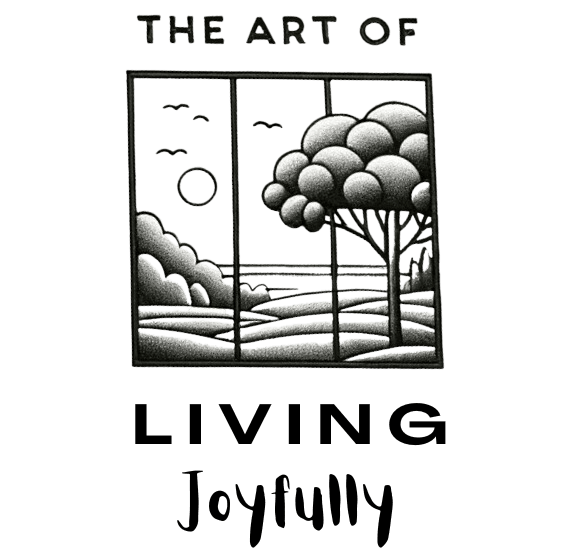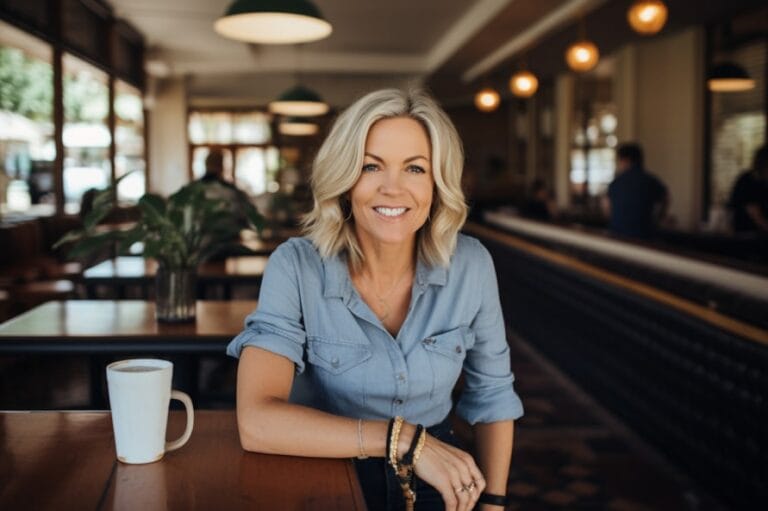Healthy Aging After 50: Boost Well-Being With These Habits
As we reach the age of 50, our outlook on health and wellness shifts dramatically. It is not only about adding years to our lives; it is about giving them new meaning. Embracing healthy aging practices becomes critical for enjoying this chapter with vigor and delight.
Understanding the value of good aging is critical for us. It is about recognizing the changes our bodies go through and tailoring our lifestyle to promote our physical, mental, and emotional well-being. To take charge of our health, we must first gain knowledge, commit to it, and be proactive.
By concentrating on healthy aging, we try to improve our quality of life rather than only prevent or manage age-related diseases. It is about making informed decisions that will allow us to spend our older years with independence, resilience, and fulfillment. Let us look at how we may accomplish this together.
Why Healthy Aging Matters
As we enter our fifties and beyond, it becomes evident that aging is more than simply a number; it is an art and science over which we have control. Healthy aging is the key to unlocking a lively life phase in which we thrive rather than simply survive, relishing each tick of the clock. Here’s the deal: as we embrace this season, we must prioritize our heath in order to wring every last drop of joy out of our golden years.
Maintaining Physical Health.
Remember when we could party till dawn and come back as if nothing had happened? Well, such days may take a little longer to recover from now on, but that is no reason to slow down. Instead, it is our cue to change and take control. Keeping our bodies in peak shape is not about running marathons or lifting weights fit for an Olympian—unless that is your thing, of course—it is about discovering what keeps us moving and feeling good.
- Regular Exercise: Combining aerobic, strength, and flexibility workouts can work wonders. Consider brisk walking, cycling, yoga, and even gardening. It is all about lubricating those joints and strengthening our muscles.
- Balanced Diet: Eating plenty of fruits and vegetables, lean proteins, and whole grains is not only excellent advice; it is also our lifeline. These foods are high in nutrients, which are necessary for our engines to function properly.
- Preventive Care: Regular check-ups are not just for your car. Keeping up with our health exams allows us to detect problems early on, when they are easier to treat.
Preserving Cognitive Function
Our minds, those amazing miracles, deserve the same care as our bodies. Keeping our minds sharp is more than just doing crossword puzzles; it is about cultivating the correct activities and habits.
- Stay Curious: Learning new talents or hobbies is not only enjoyable; it is also beneficial to one’s brain. Whether it is picking up a guitar, learning a new language, or getting into digital photography, it keeps our brain wheels turning.
- Social Connections: Engaging in meaningful conversations and interacting with others is beneficial to our brain health in addition to being enjoyable. It stimulates our minds in ways that isolated activities cannot match.
- Mindful Practices: Meditation and mindfulness can help us reduce stress and improve brain function. Allowing our minds to rest and recharge is not only a luxury; it is also a necessity.
Embracing healthy aging is acknowledging the changes in our life and changing our sails to navigate this rich and gratifying phase. It is never too late to make adjustments that improve our well-being, ensuring that we are adding life to our lives rather than just years.
Key Factors for Healthy Aging.
As we approach 50 and beyond, concentrating on our health becomes more important than ever. We are not only striving to add years to our lives, but also to improve the quality of those years. Healthy aging is not a myth; it is a fact that can be achieved with the correct tactics. Let us get into the essentials that keep us going.
Healthy Diet
Eating properly does not imply stringent dietary restrictions or maintaining an artificially small physique. It is about feeling better, having more energy, and changing our perspective on life. At our age, a healthy diet entails more than just avoiding processed foods; it also includes items that were specifically developed for good aging.
- Whole grains and fiber, such as brown rice, oats, and quinoa, help to keep our digestion on track.
- Lean protein sources include chicken, fish, beans, and lentils, which promote muscle health.
- Fruits and vegetables: A rainbow on our plate means we are getting a variety of nutrients and antioxidants.
- Avocados, almonds, and olive oil contain healthy fats that benefit the heart and brain.
It is about making wise dietary choices, selecting products that not only taste good but also nourish our bodies over time.
Regular exercise.
Let us discuss about moving our bodies. Regular exercise is not limited to persons in their twenties and thirties. For us, it is about staying mobility, maintaining independence, and preventing chronic ailments. Here are a few ways we can stay active:
- Aerobic exercises include walking, jogging, and swimming—activities that raise our heart rate.
- Strength training uses weights or resistance bands to maintain muscle mass and support our joints.
- Flexibility and balance: Yoga and Tai Chi can help us gain flexibility and avoid falls.
Exercise benefits both our physical and mental wellbeing. It is the energy boost we are looking for.
Adequate sleep.
Catching Z’s may seem like a luxury we can not afford with our hectic schedules, but it is essential for healthy aging. Good sleep hygiene ensures that we are:
- Improving Our Memory and Concentration
- Reducing the risk of specific diseases
- Supporting mental health.
Here’s how to get a good night’s sleep:
- A consistent sleep schedule entails going to bed and waking up at the same time each day.
- A relaxing bedtime routine includes reading or meditating to indicate to our bodies that it is time to unwind.
- Optimizing Our Sleep Environment: A cold, calm, and dark room is ideal.
Remember that it is not the quantity but the quality of sleep that matters.
Adopting these important aspects in our quest for good aging can lead to a life in which we thrive rather than simply survive. Let us continue to push the boundaries of what it means to age gracefully by choosing decisions that offer us joy and vitality. With each stride, we are not only extending our lifespan, but also improving our health—ensuring that our years are as fulfilling and lively as possible.
The significance of Mental Well-being
As we become older, particularly after the big 5-0, we tend to prioritize our physical health. However, we cannot ignore the importance of mental health in our journey to good aging. It is about more than just avoiding sicknesses and maintaining a healthy weight; it is also about cultivating our minds, decreasing stress, and engaging in hobbies that bring us joy and contentment.
Reducing Stress
In today’s fast-paced world, stress can sneak up on us, disguising as simply another aspect of daily life. But let us not kid ourselves: chronic stress is a quiet hazard that can harm our health in ways we do not even realize until it is too late. It is critical that we develop effective solutions to reduce our workloads and protect our health.
- Stay Connected: Social connections are not limited to the young. We need to keep such ties intact by remaining in touch with friends and family. It is more than just catching up; it is about strengthening our support network.
- Mindfulness and meditation are more than just buzzwords; they are effective stress management methods. Practicing mindfulness for simply a few minutes every day can greatly reduce stress and enhance mood.
Remember, the idea is to manage stress rather than eradicate it completely. It is about striking a balance and staying calm in the face of adversity.
Engaging in Hobbies
Let us chat about interests. Remember those activities we enjoyed doing before life became so hectic? It is time to rekindle old hobbies or discover new ones that fit our current personalities. Hobbies are more than simply a way to pass the time; they are necessary for our mental health, providing a sense of purpose and joy.
- Creative pursuits, such as painting, writing, knitting, or performing music, not only keep our minds sharp but also provide an emotional outlet, allowing us to express ourselves in ways that words cannot.
- Physical activities, such as gardening and golf, keep our bodies moving and our hearts pounding. It is about finding joy in moving and enjoying the outdoors.
- Learning New Skills: Have you ever wished to speak another language or perfect a new cooking technique? Now is the moment. Learning keeps our minds active and our emotions elevated.
Incorporating hobbies into our daily routine allows us to schedule “me time,” which is essential for our mental health and well-being. It is about striking the perfect balance between duty and play.
In our pursuit of healthy aging, let us not overlook the importance of nourishing our mental well-being. By deliberately reducing stress and indulging in activities, we are thriving rather than just existing. After all, the goal is to age gracefully while keeping our minds fresh and alive.
Managing Chronic Conditions
As we get older, it becomes more difficult to preserve our health. Suddenly, we are not merely concerned with preventing the ordinary cold. We must maintain an eye on the long game and be strategic in our approach to managing chronic illnesses that arise as we age. It is all about keeping such situations under control so they do not interfere with our ability to fully enjoy life.
Regular Check-ups
We have heard it a million times, but it is worth repeating: frequent check-ups are an essential element of healthy aging. Consider it routine maintenance for our bodies, similar to getting our car’s oil changed to keep it running properly. These check-ups allow our doctors to detect any possible problems early, when they are usually easier to manage or treat.
- Blood pressure exams and cholesterol assessments are essential.
- Do not skip diabetes, cancer, or bone density screenings, especially if you are at a higher risk.
- Regular eye checks and hearing tests are also on the list, ensuring that we do not miss out on any aspects of life.
Medication Compliance
Keeping track of prescriptions is critical for managing any chronic diseases we may have. It is not simply about remembering to take our meds, though that is certainly important. It is also important to understand what each medicine does and how they operate together.
- Keep track of your meds with an app or a traditional pill box—whatever works best for you.
- Stay up to date on your prescriptions. This includes knowing what side effects to check for and why each drug is part of your routine.
- If you are having adverse effects or have any questions about your prescriptions, contact your healthcare provider. There may be alternatives or changes that can be implemented.
Adhering to our medicine schedule and attending frequent visits may appear to be a chore, but they are critical steps in keeping us active, engaged, and enjoying life long into our 50s. Our bodies have been kind to us; it is time to repay the favor by taking proactive actions toward healthy aging.
Social Connections and Support
As we approach our golden years, the necessity of incorporating social connection and support into our lives cannot be stressed. For us Gen Xers, this is about much more than just filling our calendars; it is critical for our mental and emotional well-being, influencing everything from stress levels to lifespan.
Maintaining Relationships
Staying in touch with friends and family may appear to be a given, but as we enter our fifties, it becomes increasingly important to keep these links healthy and active. Life gets busy, and connections can wander if we do not make an effort to keep them. Here are a few methods we have found effective:
- Regular Check-Ins: Make a point of calling, texting, or emailing the individuals who are most important to you. The continuity is what sustains the relationship.
- Planning a Reunion: Arrange gatherings or reunions. Simple get-togethers are frequently the most memorable, so it does not have to be extravagant.
- Activities You Can Do along: Look for pastimes or passions you can do along with loved ones. Participating in shared hobbies, such as attending yoga classes or reading clubs, fosters camaraderie and frequent opportunities for social connection.
Taking Part in Community Groups
Not only is it advantageous to widen our social circle, but it is also thrilling. A whole new universe of connections and support systems catered to our needs and interests can be discovered by joining community groups. The following choices have been successful for us:
- Local Societies and Clubs: Almost any interest may be found in a club, whether it be gardening, bird watching, or vintage automobiles. These clubs provide the chance to learn and develop in addition to providing friendship.
- Volunteering: Giving back to the community is a potent approach to strengthen relationships and make a difference. Serving at the neighborhood food bank or taking part in community theater is just one way that volunteering enables us to connect with individuals who share our interests and values.
- Exercise Groups: Signing up for a walking or fitness class can be quite helpful. It benefits both physical well-being and social engagement.
For those of us in Generation X, maintaining social ties is not just a means of promoting a healthy aging process but also a means of adding meaning to our days, elevating our emotions, and preserving our enthusiasm for life. Let us not undervalue the importance of a robust social network as we examine the tenets of good aging. Our goal should be to extend our lives by adding more than simply years to them.
In summary
We have talked about how important social networks are to aging well after 50. We improve our well-being and add joy to our daily lives by putting relationships first and participating in community activities. It is evident that cultivating these relationships is essential for anyone hoping to age well, not just pleasant to have. Since creating a stronger social fabric for ourselves is one of the best investments we can make in the future, let us get started today. It is never too late to begin, and the advantages will be felt in all area of our lives. Let us age with our hearts as well as our health.







